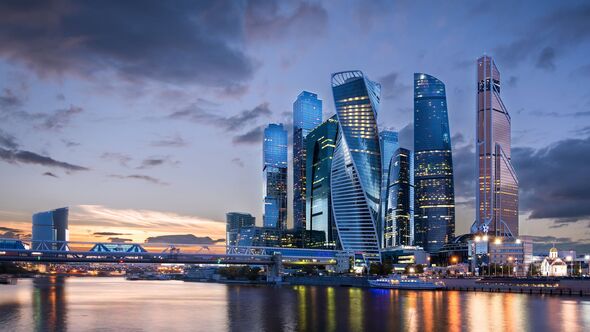World
Moscow Emerges as Europe’s Largest Mega-City with 12.7 Million Residents

Moscow has officially been recognized as the largest mega-city in Europe, surpassing the combined populations of Barcelona, Rome, and Athens. As of 2025, the Russian capital boasts a population exceeding 12.7 million, according to the World Population Review. This significant figure reaffirms Moscow’s status as a central hub for political, business, and cultural activities within Europe.
Geographically, some may mistakenly associate Moscow with Asia due to its vast expanse. However, the city is firmly positioned on the European side of the Ural Mountains, which serve as the natural divide between the two continents. This distinction places Moscow well within Europe’s boundaries, contributing to its prominence as a mega-city.
Rapid Growth and Urban Expansion
Over the past few decades, Moscow has experienced rapid growth, driven by an influx of individuals seeking better job opportunities and services. The city serves as a magnet for people from across Russia and former Soviet states. In 2012, a significant expansion of the city’s boundaries allowed it to incorporate surrounding towns, effectively doubling its size. The broader Moscow region is now estimated to house over 20 million residents.
Moscow is renowned for its extensive metro system, which ranks among the busiest in the world. Millions rely on this transportation network daily, with many stations featuring opulent designs reminiscent of palatial architecture, adorned with chandeliers, marble, and intricate mosaics. The city is also home to iconic landmarks such as Red Square, the Kremlin, and St Basil’s Cathedral, alongside modern skyscrapers in the Moscow City district.
Life in Moscow Amid Challenges
Everyday life in Moscow is characterized by a bustling atmosphere, with numerous street markets, cafes, public events, and green spaces enhancing the urban experience. Despite its vibrant culture, the ongoing conflict in Ukraine has cast a shadow over the capital. In the past year, residents have faced challenges such as drone attacks, flight disruptions, and heightened security measures. These incidents have led to temporary closures of some airports and evacuation alerts in various buildings.
As a result of these developments, the UK Foreign Office has issued strong advisories against all travel to Moscow and other parts of Russia, following the country’s military actions in Ukraine. This advisory reflects the current geopolitical climate and its impact on daily life in the city.
Moscow’s evolution into Europe’s largest mega-city highlights its significance on the continent, while also serving as a reminder of the complexities that accompany such prominence. As the city continues to grow and adapt, its future remains intertwined with both its rich history and the ongoing challenges it faces.
-

 Entertainment3 months ago
Entertainment3 months agoAnn Ming Reflects on ITV’s ‘I Fought the Law’ Drama
-

 Entertainment4 months ago
Entertainment4 months agoKate Garraway Sells £2 Million Home Amid Financial Struggles
-

 Health3 months ago
Health3 months agoKatie Price Faces New Health Concerns After Cancer Symptoms Resurface
-

 Entertainment3 months ago
Entertainment3 months agoCoronation Street’s Carl Webster Faces Trouble with New Affairs
-

 Entertainment3 months ago
Entertainment3 months agoWhere is Tinder Swindler Simon Leviev? Latest Updates Revealed
-

 Entertainment4 months ago
Entertainment4 months agoMarkiplier Addresses AI Controversy During Livestream Response
-

 Science1 month ago
Science1 month agoBrian Cox Addresses Claims of Alien Probe in 3I/ATLAS Discovery
-

 World2 weeks ago
World2 weeks agoBailey Announces Heartbreaking Split from Rebecca After Reunion
-

 Health4 months ago
Health4 months agoCarol Vorderman Reflects on Health Scare and Family Support
-

 Entertainment4 months ago
Entertainment4 months agoKim Cattrall Posts Cryptic Message After HBO’s Sequel Cancellation
-

 Entertainment3 months ago
Entertainment3 months agoOlivia Attwood Opens Up About Fallout with Former Best Friend
-

 Entertainment2 weeks ago
Entertainment2 weeks agoCoronation Street Fans React as Todd Faces Heartbreaking Choice





















